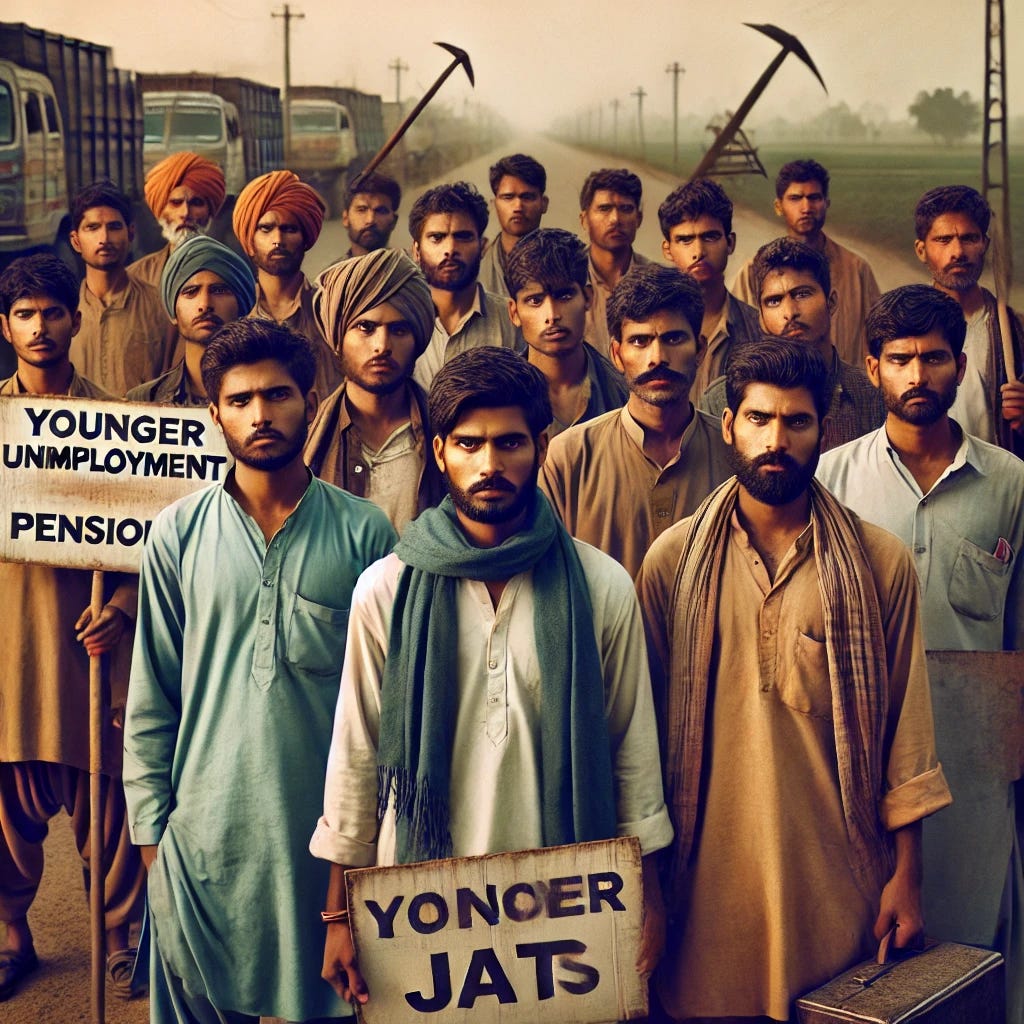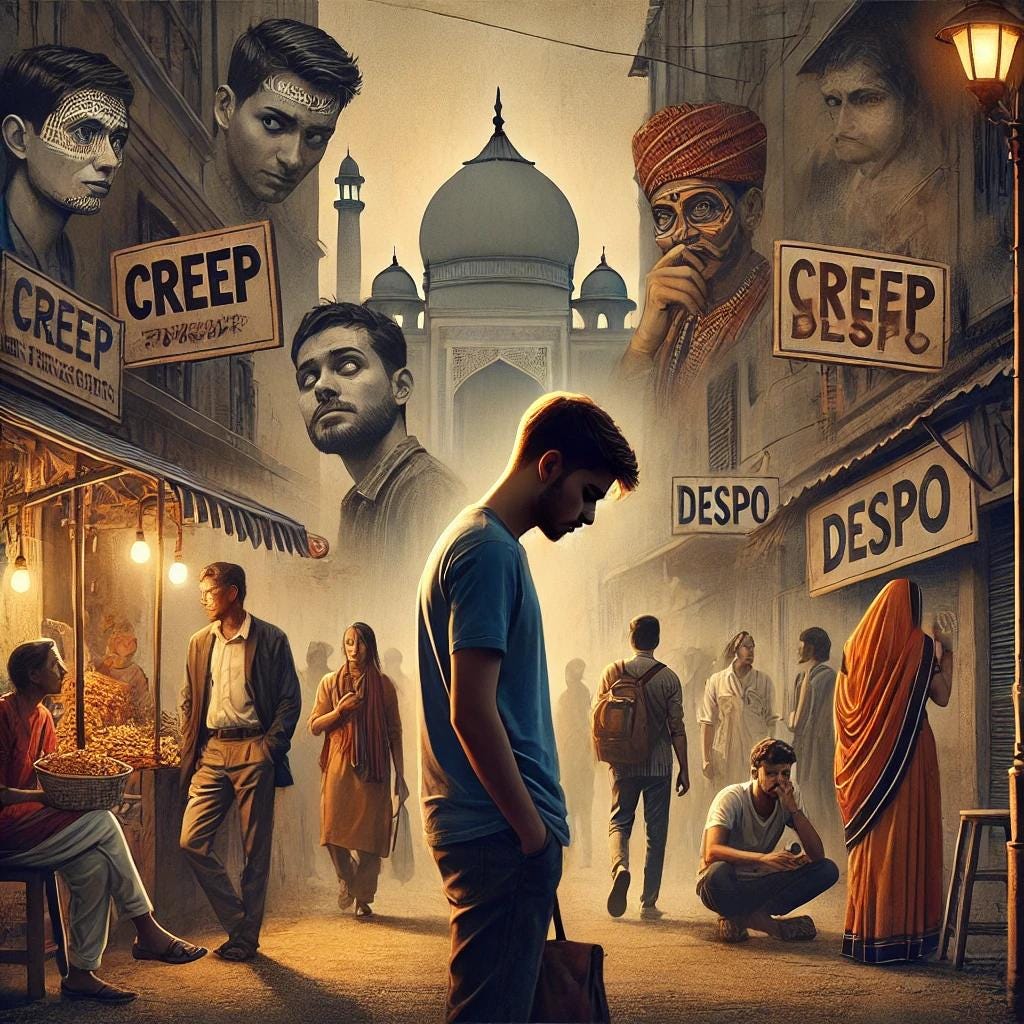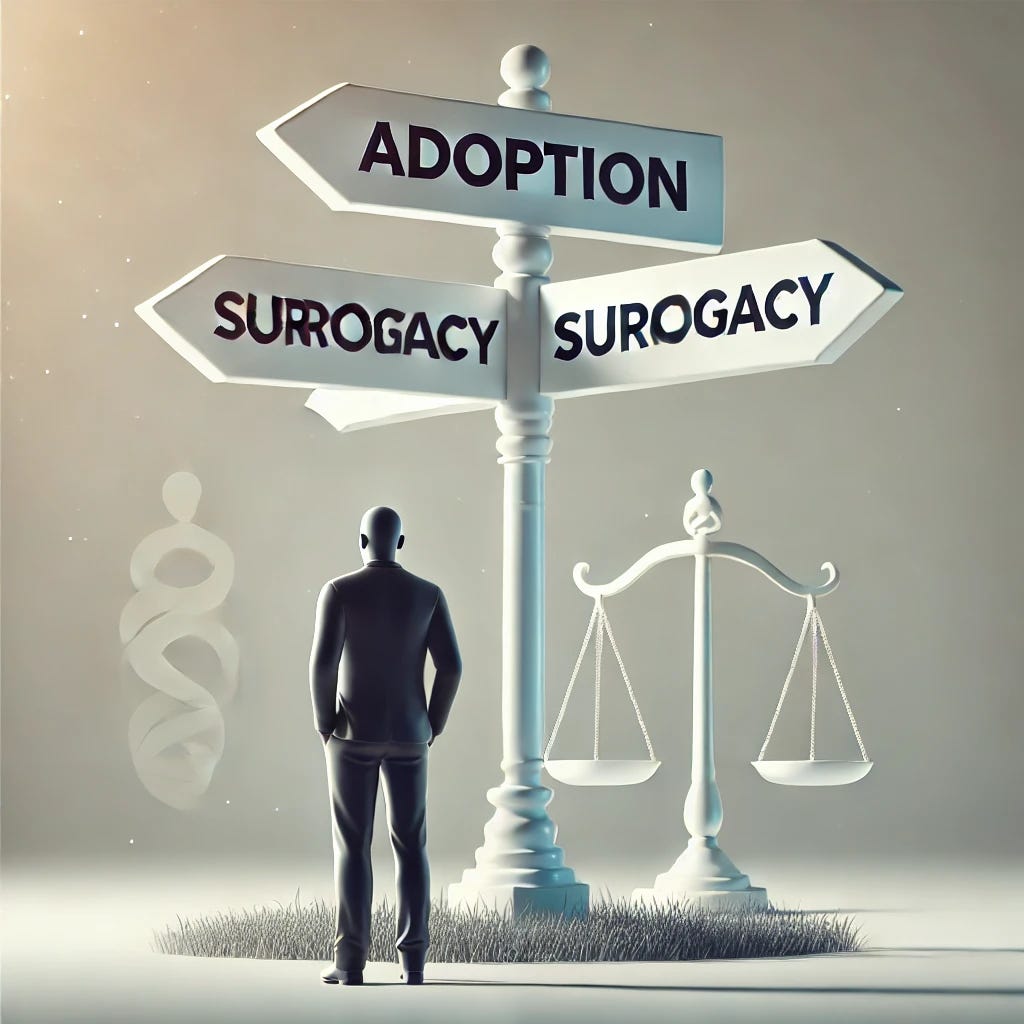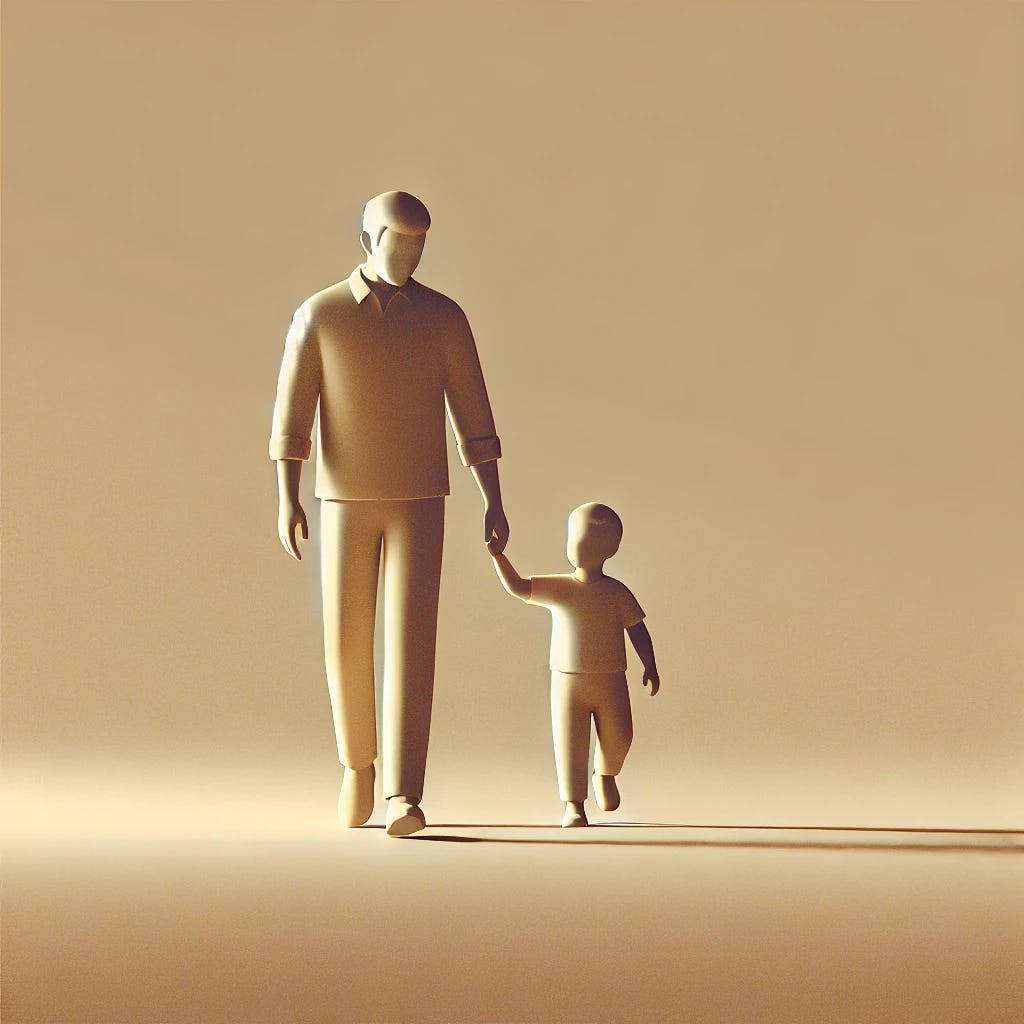Exploring the Complexities and Celebrations of Singlehood Across Cultures and Contexts
Unveiling the Challenges, Choices, and Triumphs of Living Solo
Welcome to this edition of our newsletter, where we explore the diverse experiences and challenges faced by single individuals across various contexts. From the unique struggles of unmarried men in Haryana, India, to the rise in single-person households in Scotland, our articles delve into how societal norms and personal circumstances shape the lives of those who embrace singlehood. We highlight stories of resilience, from a single gay dad navigating parenthood to a woman confronting the stereotypes tied to her beauty. Whether it's the dynamics of a wedding seating arrangement or the complexities of adoption laws, this edition sheds light on the multifaceted nature of single life and the evolving perceptions surrounding it.
India, Haryana's Single Men Demand Action:
In Haryana, a group of unmarried men, primarily from the Jat community, are voicing their frustrations over the lack of employment, wives, and children, which they attribute to the state's skewed sex ratio and high unemployment rates. These men, organized under associations like the Samast Avivahit Purush Samaj, have vowed not to vote in upcoming elections unless political parties commit to implementing pension schemes for unmarried individuals and conducting a bachelors' census. Despite the introduction of a pension scheme in Haryana, many eligible members report not receiving benefits due to bureaucratic hurdles. The state's sex ratio remains imbalanced, exacerbated by inadequate enforcement of laws against female foeticide.
The Beti Bachao Beti Padhao initiative, aimed at improving the sex ratio, is criticized for its limited impact, as illegal practices continue. The article highlights the social stigma and economic challenges faced by these single men, who feel marginalized and neglected by the government. They demand systemic changes to address their grievances, including better job opportunities and social recognition, to improve their quality of life and societal standing. Read more
Is Being a Single Man in India a Curse?
Being a single man in India comes with unique challenges, often facing societal stigma and discrimination. "" explores the societal challenges faced by single men in India, highlighting how their status has shifted from being a privilege to a stigma. There are negative stereotypes associated with single men, who are often labeled as "creeps" or "despos," leading to social exclusion and judgment, particularly in nightlife settings.
The pressures single men face, including societal expectations to marry by a certain age and the burden of being the primary provider. This pressure can lead to feelings of inadequacy, especially as friends enter relationships and social dynamics change. Single men are often judged based on their relationship status, which can lead to hasty decisions regarding marriage or partnerships. The societal norms that equate personal worth with relationship status, suggesting that being single should not be viewed negatively. Read More
Adoption and Surrogacy Laws for Single Men in India:
The legal landscape for adoption and surrogacy for single men in India is complex, presenting numerous challenges. Single men face significant hurdles when attempting to adopt, as the process is often biased towards married couples. Legal requirements and societal perceptions make it difficult for single men to navigate the adoption system, with many facing long waiting periods and stringent evaluations. Surrogacy laws further complicate matters, as recent legislation prohibits commercial surrogacy and limits eligibility to married couples, effectively excluding single men. This has led to a lack of clear pathways for single men wishing to become parents through surrogacy. The societal stigma attached to single men seeking to adopt or engage in surrogacy adds another layer of difficulty, as traditional norms often view single parenthood with skepticism. Despite these challenges, there is a growing call for legal reforms to create a more inclusive and equitable system that recognizes the rights of single men to become parents. The current legal framework highlights the need for a broader societal shift towards accepting diverse family structures, including those led by single men. Read more
Navigating Life as a Single Gay Dad: Embracing Identity and Parenthood
In "Single Gay Dad's Journey," a single gay father shares his experiences of navigating life and relationships while embracing singlehood. He discusses the challenges he faces as a single parent, including societal perceptions and the stigma attached to being a single dad in the LGBTQ+ community. The author reflects on the emotional complexities of raising children alone, highlighting the joys and struggles of balancing parenting responsibilities with personal life.
He emphasizes the importance of building a supportive network, both for himself and his children, to create a nurturing environment. The article also touches on the unique experiences of single gay dads, such as dealing with assumptions about their family dynamics and the need for representation in media and society.
Through his journey, the author advocates for acceptance and understanding of diverse family structures, encouraging other single parents to embrace their identities and seek fulfillment in their lives. Ultimately, his story serves as an inspiration for those navigating similar paths, showcasing the resilience and love that can flourish in single parenthood. Read more
The Beauty Dilemma: When Looks Intimidate Potential Partners
A woman who believes her beauty intimidates men, leading to her single status. She describes how her striking appearance often results in men being too scared to approach her, fearing rejection or assuming she is already taken. This perception has impacted her dating life, as she finds it challenging to connect with potential partners who are confident enough to engage with her. The woman shares her experiences of being judged based on her looks, which she feels overshadow her personality and other qualities. Despite the difficulties, she embraces her beauty and remains hopeful about finding someone who appreciates her for who she is, beyond her physical appearance. The article highlights the societal pressures and stereotypes associated with beauty, particularly for women, and how these can affect personal relationships and self-perception. It also touches on the broader theme of how societal expectations and assumptions can create barriers in social interactions and dating. Read more
Wedding Seating Woes:
At a recent wedding, a woman expressed her frustration after being seated at a table full of single people, which she found uncomfortable and awkward. She felt that her cousin's choice to place her among other singles was a reflection of her own relationship status and a reminder of her singlehood. The woman described the experience as isolating, as she observed couples enjoying their time together while she felt out of place.
Her discomfort was compounded by societal pressures and expectations surrounding relationships, particularly at events like weddings, which often celebrate love and partnership. She highlighted the stigma that single individuals face in social settings, where being single can sometimes feel like a mark of failure or inadequacy.
Despite her initial disappointment, the woman reflected on the importance of embracing her single status and the value of friendships with other single individuals. She acknowledged that while weddings can be challenging for singles, they also provide an opportunity to connect with others who share similar experiences. Ultimately, her story underscores the need for greater understanding and acceptance of singlehood in social contexts, encouraging a shift in perspective that celebrates all relationship statuses. Read more
Rise in Single-Person Households in Scotland:
The article discusses the significant increase in single-person households in Scotland, which has reached a record high. Recent census data reveals that nearly 1.5 million households are now occupied by a single individual, reflecting changing social dynamics and attitudes towards living alone. This rise is attributed to various factors, including delayed marriage, increased divorce rates, and a growing acceptance of single living as a valid lifestyle choice.
The trend is particularly pronounced among younger generations, who prioritize personal freedom and career aspirations over traditional family structures. Additionally, the article highlights the impact of the COVID-19 pandemic, which has prompted many to reassess their living situations and embrace solo living.
Experts suggest that this shift in household composition may lead to increased demand for smaller housing units and a need for more community support systems for single individuals. The rise of single-person households also raises questions about social isolation and the importance of fostering connections among singles. Overall, the article emphasizes the need for society to adapt to these changing demographics and recognize the value of single living. Read more
The Rise of Lifelong Singles and Changing Relationship Dynamics
Recent research suggests that one in four adults will remain single for life, but this statistic may not accurately reflect the complexity of modern relationships. The data, from a 2021 Pew Research Centre study, shows that 38% of U.S. adults aged 25 to 54 are unpartnered, with 49% of women over 65 being unpartnered. However, Georgia Grace, a Certified Sex & Relationships Practitioner, argues that these figures are alarmist and overlook various life circumstances, such as divorce or widowhood, that can temporarily result in singlehood.Grace notes that the decline in marriage rates does not necessarily equate to an increase in lifelong singlehood. Many people choose not to marry but still engage in long-term relationships. Additionally, societal shifts, such as movements of celibacy and the rejection of traditional relationship norms, contribute to changing perceptions of singlehood.The evolving dating landscape reflects broader cultural changes, including less religious influence, redefined success metrics, and increased financial independence for women. These factors have led to a reevaluation of what constitutes a fulfilling relationship, with many prioritizing personal happiness and self-discovery over traditional partnerships.While the research highlights potential economic and social challenges for lifelong singles, Grace emphasizes that being single can be a deliberate and fulfilling choice. The current dating climate is marked by individuals seeking relationships that align with their values, whether or not they involve marriage. Ultimately, the narrative around singlehood is shifting, encouraging acceptance of diverse life paths and relationships. This shift reflects a broader understanding that success and happiness are not solely defined by romantic partnerships. Read more
Hardware stores for meeting single men
The phrase "There are many fish in the sea" suggests that one should not dwell on lost love, as new opportunities for romance will arise. However, many single individuals find that discovering the right partner is more challenging than this saying implies, often requiring them to navigate through several unsuitable matches. A South African woman claims to have found an ideal location for meeting single and wealthy men—hardware stores. She shared her experience of receiving attention from two men while shopping, hoping to help other single women by revealing this insight.
While her enthusiasm is appreciated, it’s essential to approach such situations with caution, as not everyone may have good intentions. The narrative highlights that while some may find success in unconventional places, the journey to finding meaningful connections can still be fraught with difficulties. The woman’s discovery serves as a reminder that opportunities for love can arise in unexpected locations, but safety and discernment should always be a priority for those navigating the dating scene.
Being Single and Happy:
A growing number of people are intentionally choosing to remain single, driven by increased autonomy and changing societal norms. Kendall Brown, a trauma and relationship coach, highlights that women, in particular, are embracing singlehood due to financial independence. This trend is evident in the rising number of U.S. adults living without a spouse or partner, as reported by a Pew Research Centre study, and is also observed in other countries like New Zealand. Marriage rates have significantly declined, with a 15% drop among American adults aged 25 to 54 between 1990 and 2019. Experts express concern about a potential "crisis of connection" due to increased reliance on social media. Many individuals choose singlehood after traumatic relationships, seeking empowerment and healthier future partnerships
.A 2024 Forbes study shows nearly half of adults now prioritize mental health over marriage, indicating higher dating standards. The coaching industry has emerged to support those embracing singlehood, helping clients build self-worth and find fulfillment from within. This shift reflects a broader redefinition of success and happiness, with people increasingly prioritizing personal growth and self-discovery over traditional relationship structures. Read more
Singles99 is the global community for single people - where singles come to shine
In a world predominantly focused on couples and family-building, Singles99 emerges as a pioneering community dedicated to the often-overlooked 2.1 billion single individuals globally. We recognize that singlehood is not merely a transitional phase but a significant lifestyle choice or circumstance for a substantial portion of the world's population.
Singles99 acknowledges the diverse reasons behind singlehood, from highly educated individuals who delayed coupling to pursue career goals, to those actively seeking partnerships but facing challenges, and the growing number of "conscious singles" who deliberately choose this lifestyle.
Join our communities:












